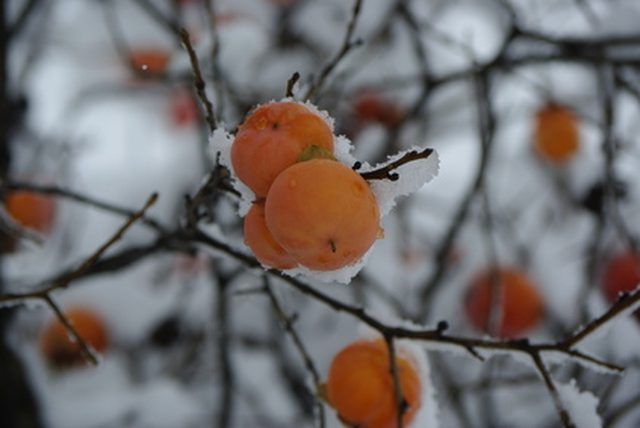Bulbs
Flower Basics
Flower Beds & Specialty Gardens
Flower Garden
Garden Furniture
Garden Gnomes
Garden Seeds
Garden Sheds
Garden Statues
Garden Tools & Supplies
Gardening Basics
Green & Organic
Groundcovers & Vines
Growing Annuals
Growing Basil
Growing Beans
Growing Berries
Growing Blueberries
Growing Cactus
Growing Corn
Growing Cotton
Growing Edibles
Growing Flowers
Growing Garlic
Growing Grapes
Growing Grass
Growing Herbs
Growing Jasmine
Growing Mint
Growing Mushrooms
Orchids
Growing Peanuts
Growing Perennials
Growing Plants
Growing Rosemary
Growing Roses
Growing Strawberries
Growing Sunflowers
Growing Thyme
Growing Tomatoes
Growing Tulips
Growing Vegetables
Herb Basics
Herb Garden
Indoor Growing
Landscaping Basics
Landscaping Patios
Landscaping Plants
Landscaping Shrubs
Landscaping Trees
Landscaping Walks & Pathways
Lawn Basics
Lawn Maintenance
Lawn Mowers
Lawn Ornaments
Lawn Planting
Lawn Tools
Outdoor Growing
Overall Landscape Planning
Pests, Weeds & Problems
Plant Basics
Rock Garden
Rose Garden
Shrubs
Soil
Specialty Gardens
Trees
Vegetable Garden
Yard Maintenance
Fuyu Persimmon Tree Care
Fuyu Persimmon Tree Care. Fuyus (Diospyros kaki "Fuyu") are a type of persimmon tree native to China. They are popular for the fact that they are non-astringent persimmons. This means that they don't have to soften in order to be eaten--they can be plucked right off of the tree. Sweet and healthy, Fuyu persimmons are becoming more and more popular...

Fuyus (Diospyros kaki "Fuyu") are a type of persimmon tree native to China. They are popular for the fact that they are non-astringent persimmons. This means that they don't have to soften in order to be eaten--they can be plucked right off of the tree. Sweet and healthy, Fuyu persimmons are becoming more and more popular with home gardeners who want a hardy but uncommon fruit tree as the centerpiece of their landscape. An added benefit is the attractiveness of the tree. The deep orange persimmons stay on the tree after the leaves have fallen, making a striking display.
Climate
Fuyu persimmon trees are not cold-hardy. An early spring freeze will kill the new blooms and developing fruit. For that reason, they should only be grown in U. S. Department of Agriculture (USDA) zones 7 through 10, according to the California Rare Fruit Growers Association.
Soil and Water
Fuyu persimmon trees are highly adaptable and will grow on all types of soils save those that are salty. While they can survive brief periods of drought, these trees grow much better if the soil is kept cool and moist. Too much water can cause root rot. In fact, the trees have very long taproots, so they should be watered slowly and deeply, such as with a soaking or drip hose. The long taproot also means that Fuyu persimmon trees do not handle transplanting very well.
Light and Air
Persimmon trees in general can suffer from fungal leaf diseases, and the Fuyu is no exception. Provide plenty of sunlight for your tree and make sure it is not crowded by other plants so that air can freely circulate. Finally, take precautions to make sure your tree is not exposed to cold breezes, which can damage the tree, according to information published by the California Rare Fruit Growers Association. Locating the Fuyu by a south-facing wall can help protect the tree.
Pruning and Fertilizing
Fuyu persimmons can tolerate heavy pruning and, in fact, can benefit greatly from regular pruning. Prune your tree in December, after harvesting the fruit. Remove branches that are rubbing against each other or growing vertically. Leave plenty of space between the branches, which will encourage strong branch growth that can support the heavy crop of fruit. Prune again in early summer if needed. Note that Fuyu persimmons do not usually need fertilizing. In fact, they are very sensitive to fertilizers, which can burn the leaves.
Harvest
Begin by thinning the fruit in the spring, when it is small (about the size of a quarter). This will enable the leftover fruit to grow much larger. Wait until after the first frost in the fall to harvest the fruit. This is usually after the tree has lost most or all of its leaves. While Fuyus can be eaten right away, letting them soften slightly makes them taste better. Fuyu persimmons also store and ship very well, making them excellent fruit gifts.